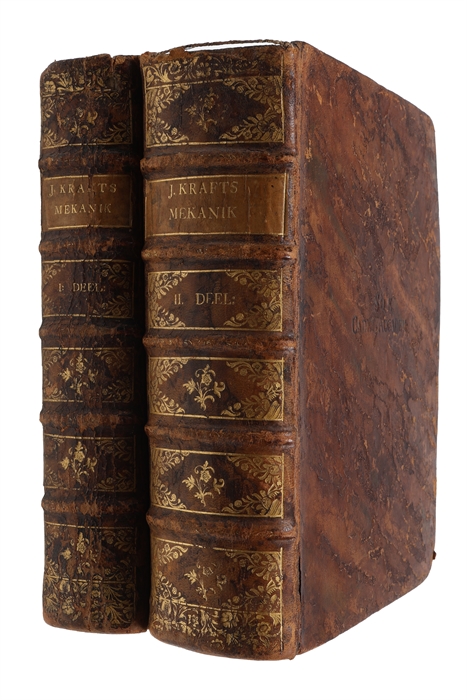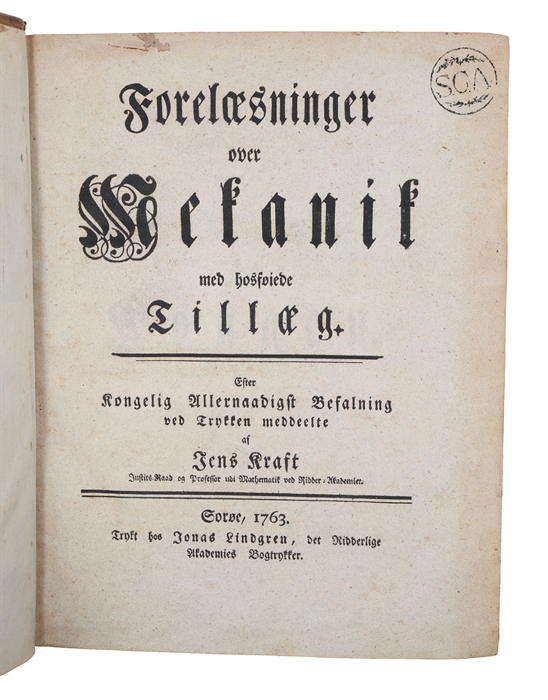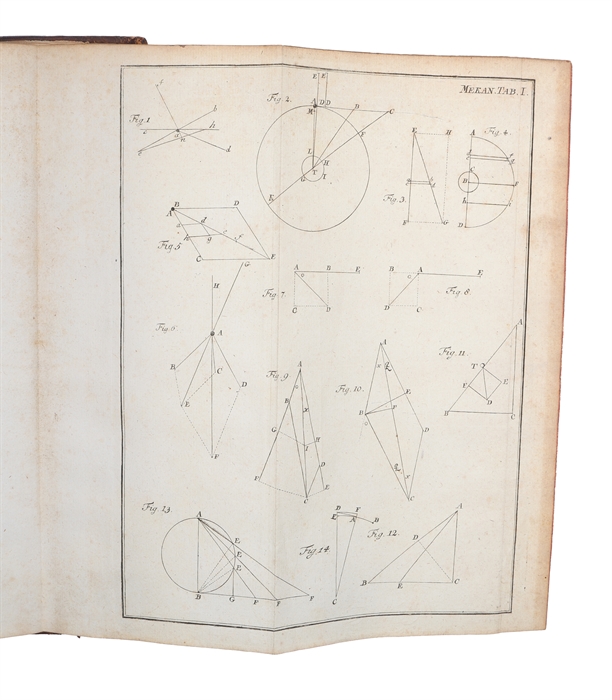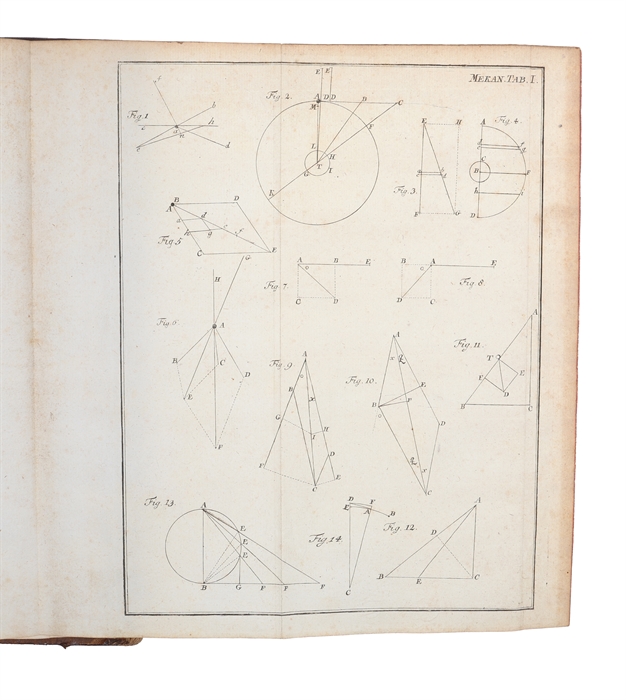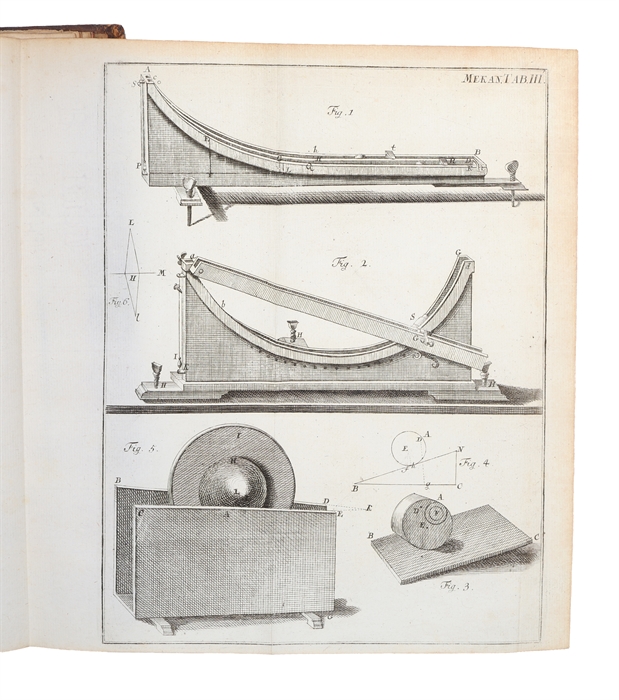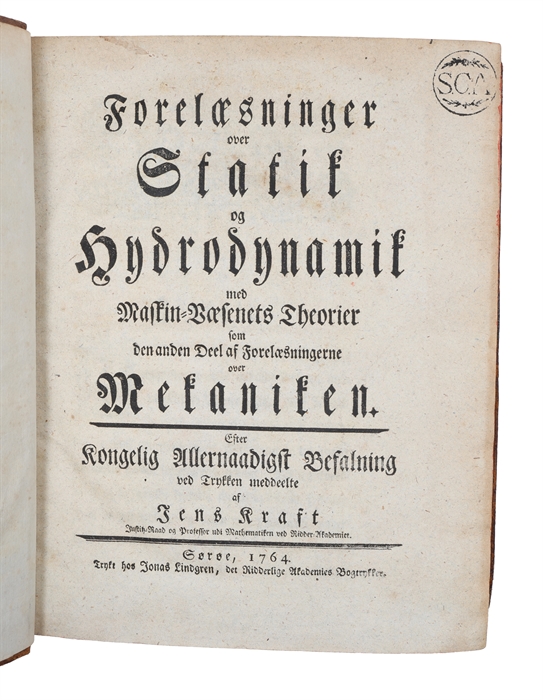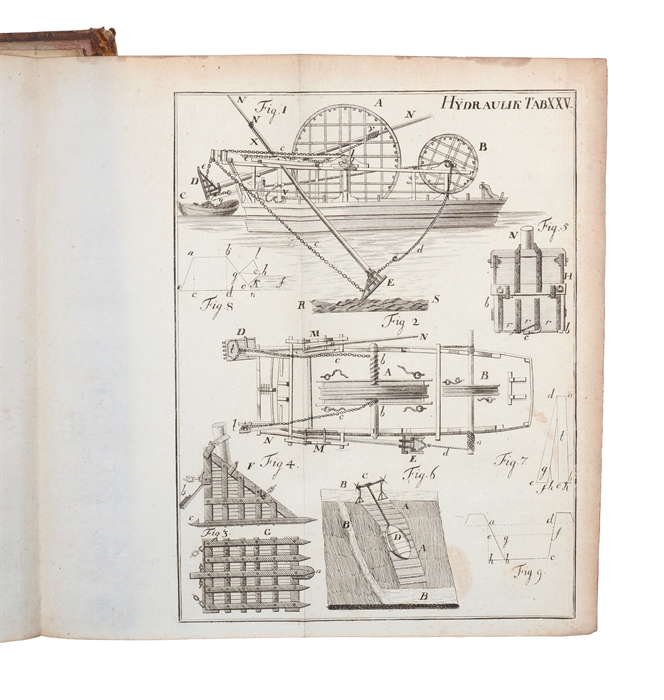KRAFT, JENS.
Forelæsninger over Mekanik med hosføiede Tillæg (+) Forelæsninger over Statik og Hydrodynamik med Maskin=Væsenets Theorier som Anden Deel af Forelæsningerne over Mekaniken. 2 vols.
Sorøe, Jonas Lindgren, 1763 - 1764.
4to. Uniformly bound in two contemporary full sprinkled calf bindings with five raised bands. "Söe Cadet Accadem:" embossed to front boards. Wear to extremities, head of spines chipped and parts of the gilting worn off. A few annotations to front free end-paper in both volumes. Small stamp to upper outer corner on title-page in both volumes. Internally very nice and clean. (28), 656, (4) pp. + 14 folded engraved plate; (16),1000 pp. + 47 folded engraved plates.
First edition of the most significant Danish physics work of the 18th century, being the first systematic exposition of Newtonian physics and mathematics in Denmark. Here he provides a systematic presentation of Newtonian physics and calculus. "Kraft’s best-known work is a textbook on theoretical and technical mechanics (1763-1764). The book, written in an easy and fluent style, contains a series of lectures baied on Newtonian principle. Each lecture is provided with a supplement giving a more advanced mathematical exposition of the subject matter. In Denmark this work gave theoretical physics a firm basis as an academic subject, while its large section on machines stimulated the expansion of industry. The book was favorably received abroad and was trans. lated into Latin and German." (DSB) Jens Kraft (1720–1765) was a Dano-Norwegian mathematician and philosopher. He was born in Frederikshald in Norway. Kraft distinguished between time and eternity asserting that “the finite can never attain eternity, but it can attain infinite time (Aevum), a time with a beginning but without an end.” In contrast, the infinite possesses true permanence. Biblioteca Danica II, 53.
While still a student in Copenhagen, he was influenced by Christian Wolff, having attended one of Wolff’s lectures during a visit to Halle. Later he was appointed professor of philosophy at the Sorø Academy, where he responded to Baumgarten’s Metaphysica with his own work, Metaphysik. Both philosophers structured their works into four divisions: Cosmologie, Ontologie, Psykologie, and Naturlig Theologie.
Order-nr.: 61848

